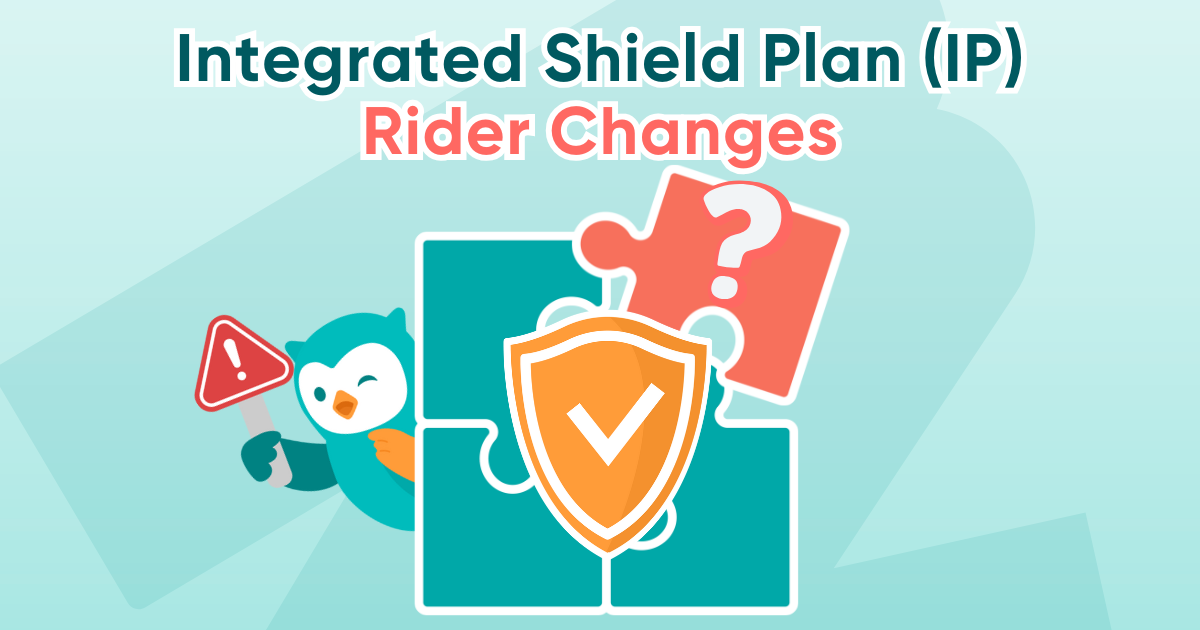Note: It was announced in November 2023 that MoneyOwl will be acquired by Temasek Trust to serve communities under a re-purposed model, and will move away from direct sale of financial products. The article is retained with original information relevant as at the date of the article only, and any mention of products or promotions is retained for reference purposes only.
______________
Investment-linked policies often get a bad rep but it’s still a product that gets touted in the market, much to the chagrin of our young writer.
In my first article, I shared my personal journey of how I entered and navigated the world of investment, which when done “correctly”, is instrumental in supporting one’s financial goals. Today, I want to focus more on protection, rather than wealth accumulation.
We may be young, or young-at-heart – but when it comes to insurance, we mustn’t be young and immature. I bought my first Investment Linked Policy (ILP) in my early 20s, cancelled a year later, and then repeated that debacle again a few years later. At present, I have paid (in cash) for an important lesson – it may not necessarily be in one’s best interest to mix investment and insurance in one basket, as is often the selling point of ILPs.
The premiums for my first ILP cost about $250 a month, and promised a healthy dose of coverage, but more importantly, grabbed my attention by the potential returns I could cash out 20 years later. At that time, the young and gung-ho me gathered that if I was going to “waste” money on insurance, I might as well have something to show for it down the road in cold hard cash. Without doing much research, I quickly agreed upon the costly policy. A few months down the road, I learned a tad more about the high fees and costs that ILPs entail. I sought the advice of a wide range of friends and forums, ultimately concluding that I may earn more returns by separating investment and insurance and investing the difference myself. I cancelled the policy and stomached a $2,000 loss from premiums already paid.
A few years later, my dad recommended me an adviser who came highly recommended by his circle of friends. At this point, I had procrastinated on purchasing insurance as I was still feeling wary after my previous bad experience. However, I was still open to hearing what this adviser had to offer that would best serve my needs. It started off with the typical pitch about how insurance is akin to having a safety net while we pursued our goals.
As I’d told this adviser from the outset that I had zero interest in ILPs, I believed he would be more likely to propose a policy that would be in my best interests. Unfortunately, through countless charts, excel sheets, and tables, I was convinced yet again to sign up for my second ILP.
During the free look period of 14 days, a little voice inside me told me to cancel the plan. However, as I was earning a higher income at this point compared to when I had purchased the first ILP, I told myself to just stick through it. Again, I was attracted by the potential returns (where even the “worst-case projection” was attractive).
After close to a year of premiums, I learned more about the pros and cons of Term Versus Life Insurance, and how a product like an ILP may not necessarily be best for my needs. Furthermore, the markets were heading down, and most of the premiums I paid seemed to be just for the purpose of shoring up the dwindling account. I bit the bullet and cancelled my policy. It dawned on me that I had made the same mistake twice, and while I shall not share the soliloquy that ensued, safe to say, I berated myself for yet more dollar bills down the drain.
Through all these, and in parallel with my increasing experience in investing, I have learned a few lessons:
1. ILPs seem to give the best of both worlds, but only in theory.
After considering management fees and costs, projected returns over the years and capital invested may not give you the ROI you may deserve. In other words, there are better alternatives.
2. Investment and Insurance should be kept separate for most people.
Think about insurance as protection, buy just enough to cover all your needs, then invest the rest. If you stay invested in a globally diversified portfolio over the long term, a comfortable retirement would be provided for. Why complicate something that can be so simple?
3. I would prefer to find advisers who do not earn on commission, so that I can have peace of mind that recommended policies are in my best interests.
This is not to say that all commission-based advisers are necessarily unscrupulous (neither were mine, for the record) – in fact, I know many, many advisers who have gone to insurance because they truly believe and feel heartened by the work they do. But for me, at least, I feel safer knowing that my adviser does not have any financial gain in proposing any particular product.
4. Term Insurance is a better choice as you can use the savings for other needs, including investments.
At MoneyOwl, we believe in buying as much insurance you need for as little money as possible. This is something that I’ve come to realise as well – term insurance is the most affordable way to get the coverage we need. The savings we get from buying term can be channelled towards other uses, which in my case, I chose to put towards investments.
If you’re thinking about getting your insurance policies reviewed by a professional, feel free to reach out to us. All our client advisers are fully salaried and do not earn on commission. Based on your needs, they are able to offer recommendations on just the right amount of insurance nothing more and nothing less. What’s more, you receive up to 50% of first-year commission rebates. If you’ve been shopping around (or procrastinating) for insurance, look no further and click here today.
About the writer: Young Millennial’s POV is a three-part series that examines the world of personal finance from a non-professional’s perspective. The writer, Kevin Ng, is a Digital Marketing Executive with MoneyOwl who describes himself as a self-proclaimed optimist who chooses to see the glass half-full. He stubbornly (and perhaps mistakenly) believes the stock market isn’t a zero-sum game and that there is more than enough pizza to go around the table.




